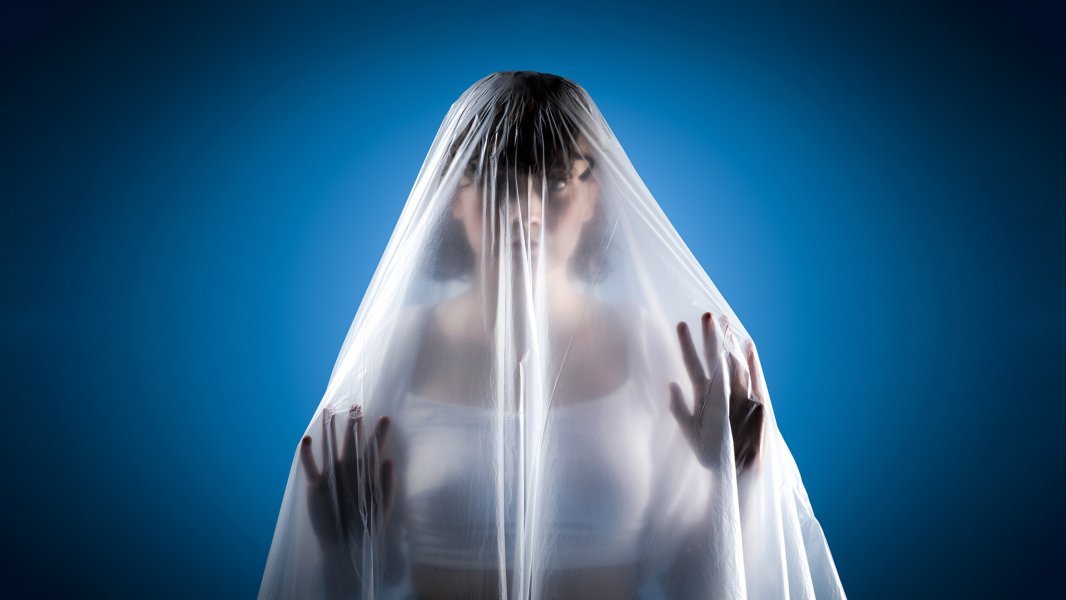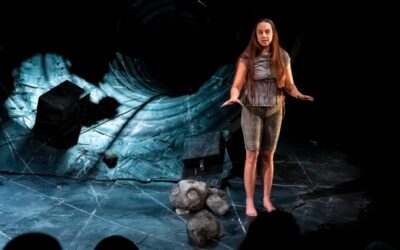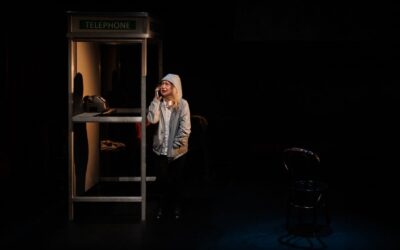By Darby Turnbull
Three girls, one boy, minus one sister.
Minusonesister, Anna Barnes’ 2013 adaption of Sophocles Electra, which was the recipient of the Patrick White Playwrighting award that year, makes a welcome return at this year’s Fringe Festival.
Barne’s savvy retelling, see’s four children eagerly falling over each other to tell and enact the story of a girl whose father (or rather his assistant) came to collect her, and she was never seen again. The story of youngest son Orestes murder of his mother, Clytenthstra and her lover Aegisthus in revenge for their murder of his father Agamenmon who they had murdered after he sacrificed their 14-year-old daughter, Iphigenia during the Trojan War. Caught up?
Barnes contemporary interpretation stays true to the bare bones of the story whilst adding contemporary influences like social media (a modern-day oracle), updated ideas about mental health and gender roles filtered through the media. Here Electra, self-harms and has an eating disorder and is hospitalized multiple times, is she truly ill or is she being silenced? The unseen Clytenthstra is an affluent, spin cycling housewife who murdered her abusive husband in self defence. The most resonant parts are in direct conversation with the legacy of this tale and its dissection of whose lives and motives have supremacy and justification in the public eye, the mental gymnastics the general public do to valorise men, or boys for acts of violence and come up increasingly creative rationalizations for violence against women and girls, their sexuality or speculations about their sexuality an easy scapegoat. The use of gossip and fervent escalation of rumours, half-truths and outright lies is well integrated into the chorus, in this case children being indoctrinated into the strange, fraught world of adults.
Marni Mount’s production features disciplined precision in navigating the complex text. The cast seldom ever stops moving in the very physical production and navigation of sets and props. It’s all very efficient and staged within an inch of its life but as such the production has very little pulse. We associate Greek tragedy with heightened passion and whilst a more reserved approach may leave room for a detached interpretation it comes at the cost of emotional insight. Murder, revenge, grief, violence are all rendered somewhat bloodless.
This leaves the cast liminal space to do much more than recite their lines and sketch in their characterisations with as much depth as the text and production allow. The strongest moments occur in the rare moments when there’s space to actually explore some emotions associated with the fallout of the action.
Damon Baudin’s Orestes is a pliable blank canvas easily susceptible to the influences around him. Baudin does very well portraying a young man’s quick descent into chauvinistic entitlement.
Miela Anich is Iphigenia likewise aptly conveys her innocence, key to her sacrifice, alongside the apprehension of how her innocence makes her prey. Anich very relatably conveys the tense subtle defensiveness that women learn young when it comes to deflecting unwanted male attention.
Maiah Stewardson gives a spiky and often drily humorous performance as Electra whose’ shrouded herself in a very rigid armour of cynicism and moral outrage without the maturity to delve into the complexity of the events around her whilst making it clear how her trauma (witnessing your father’s death at the hands of your mother will do that to you) has informed it.
Shontane Farmer as perennially underlooked sister Chrysothem is given the benefit of a writer committed to giving this character her due within the narrative (when was the last time you heard of her?) and Farmer’s intelligent, rich performance as a woman who’s sensible, restrained actions result in her own heartache and pain being dismissed in the expectation she keeps the peace and look after others.
Ethan Hunter’s sound design has many intriguing moments; chief among them the kinetic percussion that propels the action but could definitely benefit from more texture.
Likewise, Tom Vulcan’s lighting works’ well with Jodi Hopes’ set design with some stark moments and use of shadow and silhouette against the white gauze back drop and the industrial ambiance of the Explosives Factory.
Minusonesister is a great opportunity to see prominent Australian adaption of this ancient Greek text with a much-needed feminist emphasis on the roles and autonomy of women and girls.





